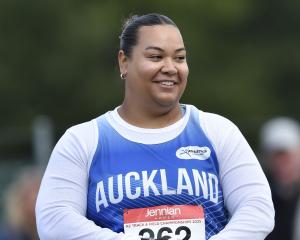Phil Coakes put to bed his 26th year as race director for the Dunedin Marathon on Sunday.
In a previous life, Coakes was one of the competitors, but he was ushered into the role of overseeing the Cadbury-sponsored event in 1990 following a brief meeting in a downtown office.
And now the time has come when he has a very real need for an assistant, due to an increased organisational workload.
''It has become quite demanding, and each year new things - rules and regulations - come in and it's all extra work,'' he said.
Although there are enough personnel to cope at present, it is becoming a bit of a stretch.
Coming from being a competitive runner 25 years ago, he found officialdom was a cap that would take some time to become a comfortable fit.
''In those days you didn't need a degree in sports events or any sort of diploma. It was just a show of hands and after 25 years-plus in the role, you could say I'm still learning.''
When Coakes took up the role, there was no such thing as electronic timing, as is the case these days.
''We had the fellas sitting there with their stopwatches at the finish. There was no internet or emails and social media that you have today. Results were finalised weeks afterwards and mailed out, unlike this year, where they went live virtually after the race.''
Entries were posted or handed in to a sports shop. Now about 90% of entries are done online.
This online capability has also opened the event up to the world.
There have been many course changes to the half marathon and this year a quarter marathon was introduced.
While the full marathon remains basically the same, changes to the half marathon have had to be made because of changes to road structure or to meet the requirements of traffic management, risk assessment and health and safety issues.
''We aim to give a little disruption to traffic as we can. We like to make a course that is scenic and pretty manageable for the competitors. It's a bit of a nightmare but I guess that is the nature of the thing.''
Coakes praised the work of a solid team behind him, who have helped grow the event from around 500 competitors to a record field in 2009 of 2369.
Although numbers have fallen slightly since, the inclusion of a quarter marathon this year is just one way in which Coakes sees the event evolving, and the completion of the walk and cycle way between the stadium and Port Chalmers in 2016 is another.












